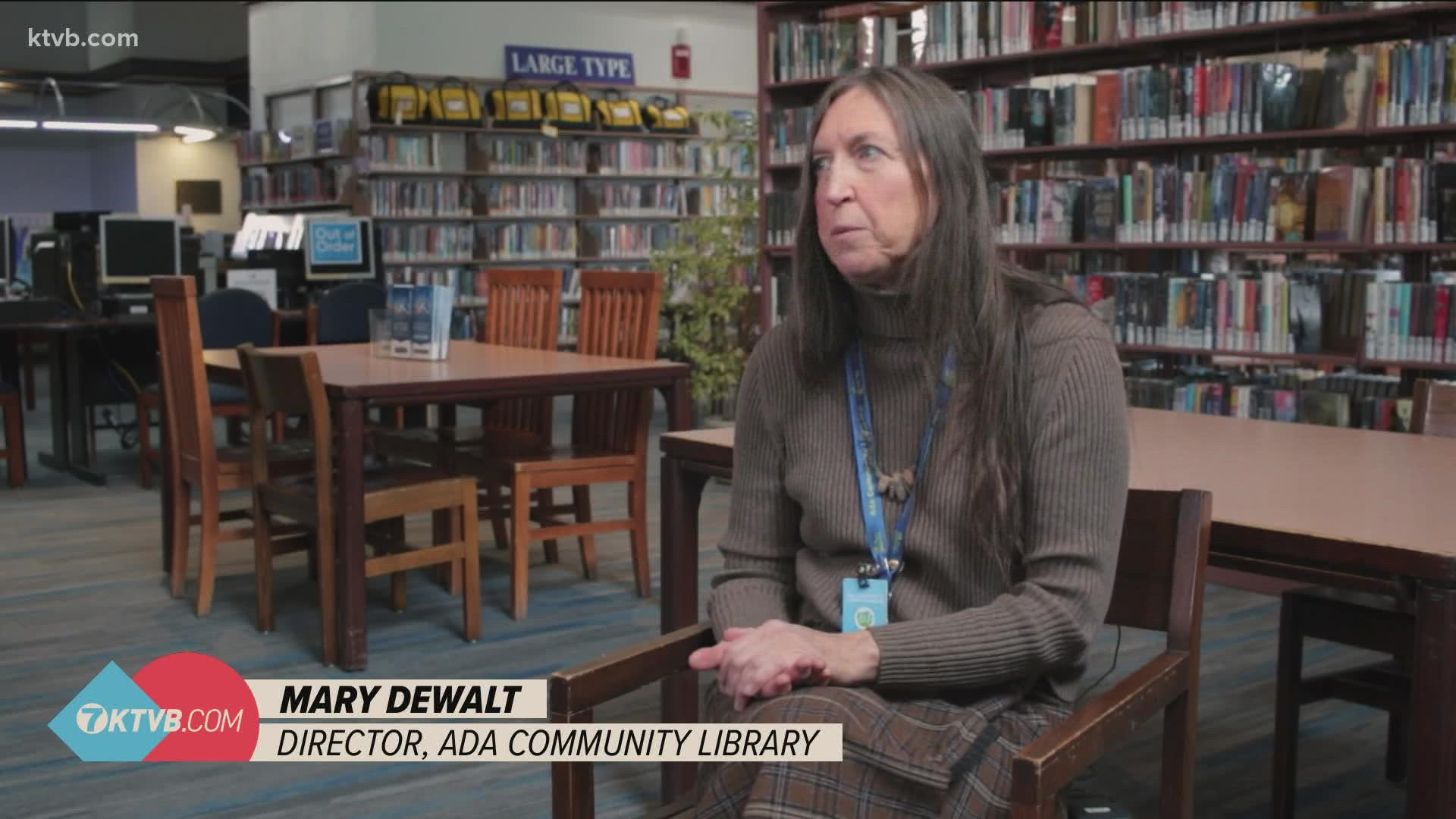BOISE, Idaho — The Idaho House passed H.B. 666 on Monday, which would remove the exemption for public and school libraries, universities, and museums from being prosecuted for disseminating harmful material to minors.
Currently, librarians follow the miller test when deciding what books and materials to put on the shelves. Libraries have boards made up of community members who set policies and guides for placing materials.
Criteria for selection include the demand, literary quality, and the need for material. That standard applies to every one of the nearly 200,000 items at the library.
During the debate of the bill, the question of what is "objectively obscene" was discussed heavily.
Representative Gayann DeMordaunt pointed out the word "knowingly" that is in the Idaho code. Meaning in order to be held accountable, librarians have to "knowingly" give or make available obscene material.
Where is the objective line? And what about the term "disseminate?" Those terms are questionable even to the Ada County Community Library director, Mary Dewalt.
In an interview with Dewalt, we asked how this bill would change local libraries.
Mary: "You know, it's funny, I was thinking of that myself, the idea of the term 'disseminate' means spread widely. We don't disseminate anything, we make things available and we make them available for personal choice and family choice, and so yes, that itself is a little disconcerting that they're considering us disseminating."
Brian: "Yeah, so to say there are no obscene materials in a library, would that be an accurate statement?"
Mary: "Well we follow, we are totally aware of the supreme court and the Miller test and so by that definition, we would avoid obscenity."
Brian: "But there are books that are questionable, or in the gray area?"
Mary: "Or that someone subjectively would find something that they're not interested in and they would not want anyone in their family to be reading, but again, it's a personal decision."
Brian: "Is this a problem? Are libraries loaning or checking out books or materials to minors that would be considered obscene or damaging?"
Mary: "We certainly do not see it that way. We understand that there may be people in the community that find an individual item, again, objectionable for their own values and their family values, but we do not see that being a problem and we have had people come to us. We have in the selection policy part of it is a reconsideration process, and we have a form, people can fill out the form and talk to us about an item in the collection and we'll explain the reviews, the reason it was added to the collection. We will evaluate it again and sometimes it's possible that an item in the children's collection gets moved to a teen, or a teen to adult, but in most cases, we have not found this to be a problem at all."
Brian: "The book fifty shades of gray is an adult book obviously. But if a kid picked that book up, and walked up to the desk and said 'I want to check this out,' how would a librarian handle that?"
Mary: "So in the library, when you become a cardholder, your library card provides you access to all the materials in the library, and so if a minor would come up and check out a book that was shelved, intended for the adult collection, the staff may engage in, 'oh, you know, is there materials we can help you with?' But we may not even because we can't really judge why that child might be checking out that book, they may be checking it out for their grandmother or mother or aunt, who knows, and it's not really our place to make a decision about that."
"We do not act in loco parentis. We do not act as parents. We trust that the parents will talk to their child. They might see that their child checked something like that out and it was not given to an adult, they may hopefully use that as a teachable moment to talk to their child about what kinds of books they would prefer they actually check out."
Brian: "Librarians aren't parents, but this law might make you act as one."
Mary: "Exactly, and it would be almost impossible for us to look at our collection of almost 200,000 items and determine what an individual might find objectionable because it is so different."
"My fear is that it would become a chilling effect, that we would question every potential item that we would put on the shelf and that would be impossible."
Join 'The 208' conversation:
- Text us at (208) 321-5614
- E-mail us at the208@ktvb.com
- Join our The 208 Facebook group: https://www.facebook.com/groups/the208KTVB/
- Follow us on Twitter: @the208KTVB or tweet #the208 and #SoIdaho
- Follow us on Instagram: @the208KTVB
- Bookmark our landing page: /the-208
- Still reading this list? We're on YouTube, too:

